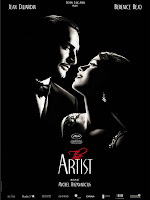 Summer is the season that studios are supposed to provide audiences with movies that provide unforgettable entertainment. In the past, this season has given us “Jaws” and “Star Wars.” Gone are those great days. In the outside world, it was one of the hottest summers on records. In cinemas across the country, it was one of the most miserable.
Summer is the season that studios are supposed to provide audiences with movies that provide unforgettable entertainment. In the past, this season has given us “Jaws” and “Star Wars.” Gone are those great days. In the outside world, it was one of the hottest summers on records. In cinemas across the country, it was one of the most miserable.
The summer of 2011 was the summer in which 3D killed itself along with good storytelling, with few notable exceptions. Woody Allen’s “Midnight in Paris,” without even meaning to be, became everything that the summer movie should be: wise and whimsical escapism. It is the most memorable movie he has made in years, and one that deserves to be mentioned in the same breath as “Annie Hall” and “Hannah and Her Sisters.”
Summer movies are all about creating a spectacle and the site of 1920s Paris is a spectacle, albeit one that didn’t cost $300 million to shoot.”Midnight in Paris” is Allen’s return to his anti-intellectualism roots. Some scenes are about as good as the
Marshall McLuhan scene from “Annie Hall.” Plus, Owen Wilson is the most convincing Woody Allen stand-in to grace the screen thus far.
Before getting to the mediocre, it is necessary to acknowledge the good. Most of the best summer movies were definitely not saved for last. “Bridesmaids” was not the groundbreaking triumph in the women’s rights movement as some suggested, but simply a near-perfect comedy. “Bridesmaids” works because of its playful anti-romantic comedy feel that’s sometimes nasty but never really mean. In other words, it loves every single one of its characters. All of the dialogue and situations flow with the awkward and unforced feel of reality. One of the most underrated masters of awkward comedy (Paul Feig) got his moment in the sun. And the star and co-writer, Kristen Wiig, has gone from “Saturday Night Live” skit saver to bankable Hollywood actress. Sometimes, success in Hollywood can be well deserved.

Also at summer’s beginning was the superb “The Tree of Life.” It was a head scratcher, but more in the “2001: A Space Odyssey” sense. At this point in his career, Terrence Malick has earned the right to tell a story that jumps back and forth between the creation of the universe, 1950s Texas, and dinosaurs. Even in their shortest moments, those family scenes felt so real. It was never meant to create a complete portrait of their lives, but it is rather the story of how our memories, and our very existences, fit in to the universe as a whole. In the whole scheme of things, does it really matter how we live our lives? That is a question, along with many others that Malick raises, that countless people will explore for years to come.
The great thing about a film about “The Tree of Life” is that it didn’t pander to its audience in order to make something that they want. Sometimes, the best directors make different and difficult movies because sometimes, those are the movies we ought to be seeing more of. Unfortunately, some filmmakers don’t seem to realize that, and that plays a part in this mediocre summer. I didn’t see “Transformers 3″ or “Green Lantern” or “Thor,” so I can’t speak for any of those movies. However, I did see “Super 8.” While it was a highly entertaining and superbly made piece of 70s nostalgia throughout, its ending reversed all its progress. It is great that J.J. Abrams took his time on his film and didn’t reveal the monster instantaneously. However, its ending resolved every plot line too quickly and too easily and what should have been thrilling came out as dull.
“Horrible Bosses” also missed the mark just slightly. While its three leads (Jason Bateman, Jason Sudekis, Charlie Day) pulled off three of the best comedic performances I’ve seen in years, a certain part of the story involving a navigation system turned the film into a sellout. The characters get themselves into some pretty terrible situations thanks to their stupidity, but letting them off the hook that easily doesn’t seem fair to anyone. Despite that, Bateman can still deliver a punchline with flawless deadpan, and Day can seem innocently insane even when he’s not parading cats with mittens around.

In the end though, 2011 can be defined as “The Summer of Meh.” This is not the state of an angry reaction, but rather an uncaring one. I could talk about how terrible “Cowboys & Aliens” is but nothing about that movie really motivates me to. “Midnight in Paris” was the rare film that deserved to be seen by a wide audience and with a little patience, it was. “Terri” is probably going to go on my year end list, but it won’t be in a theater near you anytime ever.
This summer, movies lost their mojo. Hopefully, Hollywood will take this as a learn from their mistakes rather than ignore them, as they always do. Perhaps superhero movies and shoddy 3D are on the way out. While it is understandable that story doesn’t always get people in the theater, it should go without saying that the audience enjoy the product they are paying to see. Luckily, the fall and winter seasons look promising (“Moneyball” and “The Girl with the Dragon Tattoo,” particularly). For now, just enjoy some of the fine programming cable television has had to offer this summer. For instance, have you watched “Breaking Bad” yet?
This is one of the funniest still images from a movie ever. Why isn’t this a meme yet?










